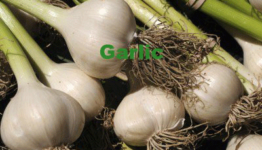No plant is 100% rabbit proof and that includes deer proof. When food is in short supply rabbits and deer will eat just about any type of vegetation. Rabbits as well as deer alike will consume anything within their reach when hungry. While rabbits clearly prefer a tasty vegetable garden, they will eat most any plant when hungry and pickings are slim. This detailed article will dive into the various rabbit resistant plants, so you can be better protected and prepared.
Liquid or granular rabbit repellent products should always be considered when protecting a garden. These products can offer a cheap alternative to fences and harsh chemicals. Rabbits typically avoid plants with furry leave and strong scent such as mint and will usually gravitate to young tender leaves when available. Newly planted garden plants are irresistible to a hungry rabbit. Some landscapers advise not to fight against rabbits when you can plant a wide range of plants that most rabbits would rather not eat. This does not apply to vegetable garden variety plants. Sometimes rabbits will be tempted by new plant growth but once a plant is established rabbits will usually leave it alone and move on to younger plants. Trees are typically more resistant to rabbits. This may also depend on available food sources in your neighborhood. The following is a list of plants typically not eaten by rabbits.
Vegetables and Fruits typically not eaten by rabbits
Asparagus Grape Leeks Onions Potatoes Rhubarb Rhubarb Summer Squash Tomato
Herbs typically not eaten by rabbits
Basil Catmint Dill Lambs ear Garlic Spearmint Peppermint Oregano Rosemary Sage Parsley Savory Tarragon Annuals typically not eaten by rabbits Ageratum Amethyst Flower Wax Begonia Four O’Clocks Geraniums Marigold Mexican Sunflower Spiderflower Vinca Ageratum houstonianum Begonia x semperflorens-cultorum Calendula officinalis Catharanthus roseus
Perennials and Bulbs typically not eaten by rabbits
Adam’s Needle Ajuga repens Astilbe Barrenwort Bear’s Breeches, Spiny Bee Balm Blanket Flower Bleeding Heart Bittersweet Grape Honeysuckle Trumpet Creeper Wisteria Bugbane Bugleweed Cactus Cardinal Flower Clematis Cranesbill Candytuft Cinquefoil Creeping Lily-Turf Daffodils Euphorbia Spurge Daylilly False Indigo Ferns (most) Foam Flower Epimedium x rubrum Red Acanthus spinosa latifolius Vinca Yucca
Woody Plants typically not eaten by rabbits
Ash Azaleas Beech Birch Black Walnut Black Walnut Bottlebrush Buckeye Boxwood Buckeye Bush Cinquefoil Butternut Climbing Hydrangea Cotoneaster Dwarf Inkberry Horsechestnut Japanese Maple Juniper Ginkgo Hemlock Honey Locus Rhododendron Sumac Spruce Tatarian Dogwood Tulip Tree Yew Rabbit fencing is expensive and one of the most effective way of controlling rabbit damage. Rabbit repellant products can also be a very effective means for deterring rabbits and deer, but like any other damage prevention method must be used before extensive damage occurs. Homemade formulations of two tablespoons of hot pepper sauce, eggs and garlic have shown to be an effective repellent for deterring rabbits and deer. Bars of smelly soap hung on trees have shown to be fairly effective rabbit repellent. Commercially available repellents have had good results and are fairly inexpensive.











